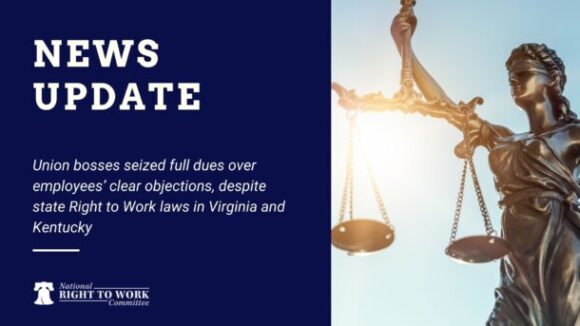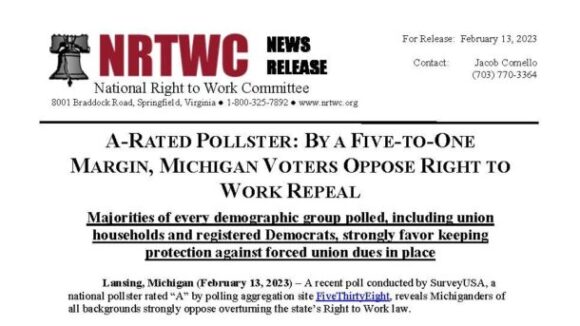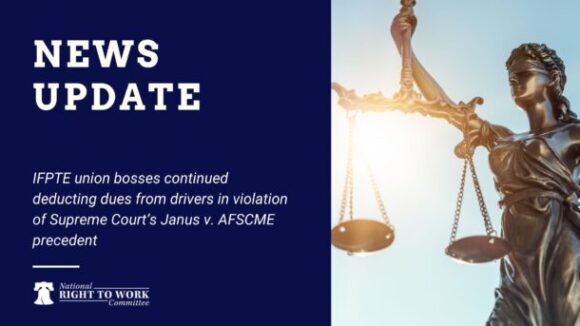Virginia, Kentucky Workers Slam Union Officials with Charges for Illegal Dues Deductions
Union bosses seized full dues over employees’ clear objections, despite state Right to Work laws in Virginia and Kentucky
http://article.nationalreview.com/437053/a-nation-of-trentons/the-editors
A Nation of Trentons
Government employees’ unions already maintain a death grip on the finances of most state and local governments, and a remarkably bad piece of legislation — the Public Safety Employer-Employee Cooperation Act — threatens to tighten that stranglehold, imposing the unionization of public-safety workers in the 21 states that currently do not extend that privilege. We are not surprised that most Democrats are supporting the bill, which empowers and enriches one of their most important constituencies; we are surprised and disheartened that some Republicans are backing it.
This bill is bad policy and bad politics. It is bad policy because government employees are overpaid and overpensioned, and wider unionization will make that worse. State and local governments already heave under the burden of their swollen payrolls, while the time-bomb of unfunded government-worker pension liabilities is set to blow a multitrillion-dollar hole in state and local budgets within a few years.
Some states and municipalities are in deep crisis already, while others have managed their affairs with relative aplomb. In most cases, those jurisdictions that have come through the recent recession without descent into utter crisis have been those that enjoy the flexibility and ability to innovate that comes from having a fluid work force — which is to say, a work force that is not subject to the rigidities imposed by public-sector unions. The size of paychecks is not the only concern, or even the principal one, when it comes to the unionization of government work forces: Inflexible work rules, the politicization of the work place, and the protection of low-performing workers are equal problems, if not greater.

Union bosses seized full dues over employees’ clear objections, despite state Right to Work laws in Virginia and Kentucky

A recent poll conducted by SurveyUSA, a national pollster rated “A” by polling aggregation site FiveThirtyEight, reveals Michiganders of all backgrounds strongly oppose overturning the state’s Right to Work law.

IFPTE union bosses continued deducting dues from drivers in violation of Supreme Court's Janus v. AFSCME precedent